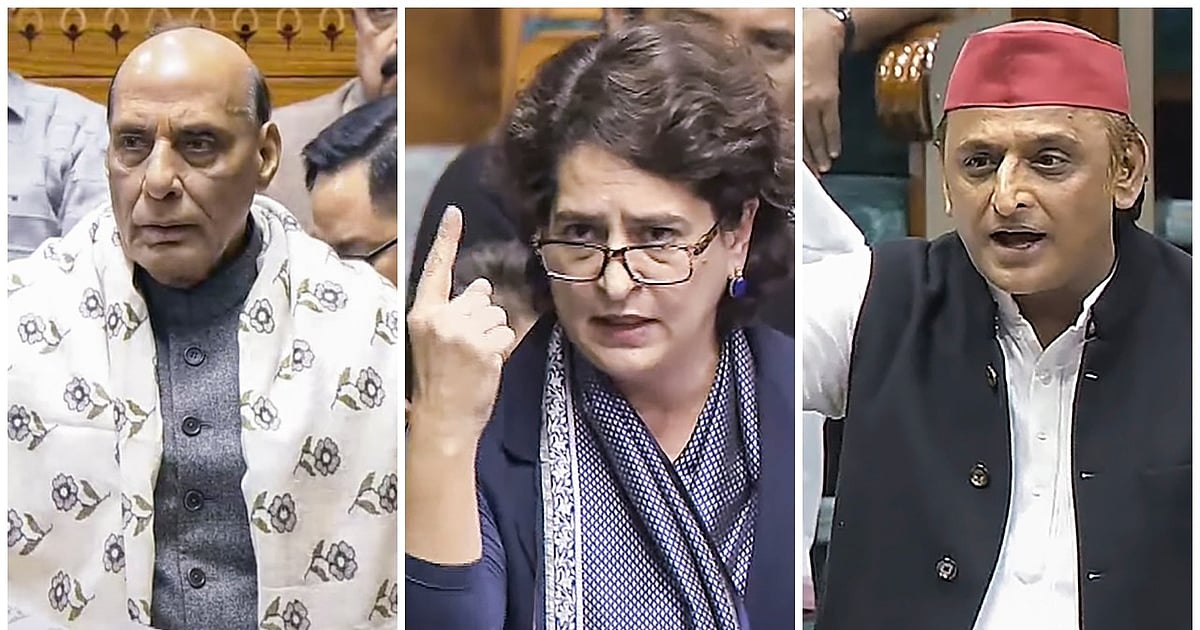 |
|
The Lok Sabha witnessed a significant debate on the Indian Constitution, marked by a mix of sharp exchanges and measured discussions. While the overall tone was less acrimonious than previous sessions, a comment made by Trinamool Congress Member of Parliament Mahua Moitra regarding the death of Justice Loya triggered significant disruption, resulting in two adjournments of the proceedings. This incident highlights the delicate balance between political discourse and maintaining decorum within the legislative chamber. Moitra's remark, though not explicitly detailed in the provided text, clearly touched upon a sensitive issue, prompting immediate reactions and calls for order from the presiding officers. The subsequent adjournments underscore the gravity of the situation and the need for careful consideration of language used within parliamentary debates.
The debate itself involved several key political figures, including Union Home Minister Rajnath Singh, Congress leader Priyanka Gandhi Vadra making her debut in this particular debate, and Samajwadi Party chief Akhilesh Yadav. While the specifics of their contributions are not provided, their participation underscores the importance of the constitutional discussions within the political landscape. The presence of such prominent figures suggests a high level of engagement with the subject matter and its implications for the nation's governance. The contributions of these leaders likely covered a range of topics related to the interpretation, implementation, and potential amendments to the Constitution, reflecting differing political ideologies and perspectives.
The event highlights several key aspects of Indian parliamentary proceedings. Firstly, it showcases the diversity of viewpoints within the Lok Sabha, with differing political parties expressing their opinions on crucial matters of national importance. This reflects the vibrant, yet often contentious, nature of Indian democracy. Secondly, the incident involving Mahua Moitra’s remark underscores the challenges in balancing freedom of expression with the maintenance of order and decorum during parliamentary sessions. The ability to engage in robust debate without resorting to inflammatory language or comments that could be seen as disrespectful or insensitive remains a vital aspect of effective governance. This requires a careful balance, ensuring that critical views are expressed without disrupting the legislative process.
The overall impact of the debate remains to be seen. The specifics of the arguments presented and the resulting outcomes will undoubtedly shape the political narrative in the coming days and weeks. It is crucial to analyze the complete transcripts and recordings of the debate to gain a fuller understanding of the perspectives expressed and the impact of the disruptions. The event serves as a reminder of the complexities of parliamentary democracy and the constant need to navigate the tensions between freedom of expression, respectful debate, and maintaining the smooth functioning of the legislative process. Future analyses should focus on understanding the broader implications of the discussions and their potential impact on national policies and constitutional interpretations.
Further investigation into the specific content of the speeches by Rajnath Singh, Priyanka Gandhi Vadra, and Akhilesh Yadav is necessary to provide a more comprehensive analysis of the debate. Understanding the nuances of their arguments is crucial to assess their respective positions on constitutional matters and the potential impact on policymaking. Similarly, a deeper understanding of Mahua Moitra's comment and the specific reasons for the adjournments will provide a more complete picture of the events that unfolded. The media's role in accurately reporting these events and ensuring informed public discourse is also critical to the health of the democratic process. Transparent reporting, devoid of bias or sensationalism, is essential to facilitate a well-informed citizenry.
